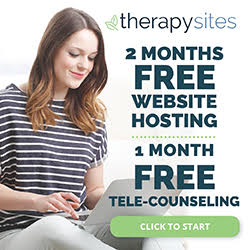So, you have reached the point in your life where you feel ready to enter the mental health field as a counselor, and you are left with the question of…now what?
You have completed the necessary educational and clinical requirements and are either in the process of pursuing provisional licensure or completing it. However, little is said about what you actually need to do next, particularly once you are fully licensed and essentially on your own.
Therefore, answering “who am I as a counselor” may seem like a daunting question and one that a lot of professionals often find themselves having to answer. Seeking the answer is not as difficult as you may think, but it requires a lot of self-reflection and a good understanding of the expectations and responsibilities the job requires.
First, Look at Your Role
A good place to start would be to review the American Counseling Association Code of Ethics and assess your ability to uphold the core professional values. In doing so, be sure to evaluate your strengths and weaknesses to determine whether or not you can engage in effective counseling practices that will benefit not only the clients whom you serve but also your own professional growth.
For example, with respect to the ethical principles related to the Counseling Relationship, a very dear role that I often enjoy employing is that of advocate. Advocacy is actually a big part of why I became a counselor; however, I have to remember that I cannot just advocate for my clients in any manner. I must first do so with their consent, and then ensure to advocate on their behalf for the purpose of improving their accessibility to services by working to remove barriers that hinder their access, growth, and development.
Thus, by complying with this ethical standard, I am not only fulfilling my personal and professional goals, but I am benefiting my clients, and hopefully impacting the greater community by helping to eliminate potential obstacles that other community members may face.
Next, Look at Yourself
Once you feel confident that you can uphold the ethical standards, deeply assess your own personal attributes. Focus on your current roles (e.g., husband/wife/partner, male/female, sister/brother, caregiver) and various socio-cultural aspects of your own individual experience.
Identify your personal beliefs and values and assess how these relate to your sense of connectedness with obtaining a professional role in the mental health field. Think about why you entered the field in the first place.
Reflect on the mentors and influences that helped shape your experiences. Identify personal goals that you have for yourself and how you can contribute to the overall growth of the mental health field.
Review previous courses that made you feel compelled and eager to pursue counseling and highlight theorists and theoretical concepts that also piqued your interest.
You can literally create a diagram outlining all of the areas that define you, your roles, and your responsibilities.
Finally, you can look at how these parts of yourself relate to your professional expectations, as well the expectations of the mental health field. By doing this work, you can see the parts of yourself that have shaped the counselor that you have become.
Then, Look Around
If you are someone like me who wanted to return home to become a local service provider, then go even further and conduct a needs analysis of your local community. See what gaps are still prominent and think about how you as a counselor may be able to adequately address those needs.
This can often be a critical step – it can help you see the bigger picture of how you as a professional can contribute to the greater good of your local community.
It may also be beneficial to join local organizations and associations that are related to your field so you will have access to mentors and resources. These organizations can also help you remain aware of advocacy, educational, and professional efforts in your local area.
Because the field is changing constantly, connecting with other professionals will allow you to stay on top of legislation, training and educational opportunities, and other professional activities that can enhance your work.
Keep Focused & Stay Hopeful
Even more interesting is the fact that some of us did not choose this path, but the path chose us. Sometimes you may not understand why things happen or why you made certain decisions. That may just mean that you have something great to contribute to the field, and it could be something that you cannot even see yet.
Never give up, stay focused, and keep working hard to reach your goals. Remember to set time aside for yourself because you cannot help anyone if you are not in a good place.
I know it sounds like a lot, but think about how you arrived at your personal identity. It was not something that just grew overnight; it was a process that developed over your lifespan and remains continuous. Developing your professional identity is going to unfold in the exact same way, as a process. It may be filled with excitement, frustration, success, and failure. But at the end of the day, you will be able to look back and be grateful that you ultimately stayed the course.
My Own Journey
To give you some insight into how my professional journey began, I can recall being five and wanting to be a doctor because I loved helping people. Like my Nanna, who was a nurse, I had my heart set on trying to prevent people from suffering.
However, I did not realize that pursuing a career in the medical field was not my true calling. In fact, during my sophomore year of college, I switched my major from pre-med to psychology.
So, my professional counselor identity emerged during my undergraduate studies, as I became intrigued with the passionate work and leadership of my psychology professors. This encouraged me to be able to identify employment and volunteer activities related to the helping professions, which ultimately led me to pursue my Master’s degree in Professional Counseling.
From there, I was very lucky to have had great mentorship and guidance from my Licensed Professional Counselor (LPC) Supervisors, who were highly influential in my decision to pursue my LPC licensure.
Still, I wanted more, so I opted to complete my PhD in Clinical Psychology so that I could extend my professional efforts through research, enhanced clinical work, and advocacy.
Now, I feel complete. It shows in my daily work with my clientele because I am truly satisfied with what I do. I was able to start off with a dream and end with a dream fulfilled.
Now, I contribute to the mental health field by supervising Master’s level graduate students at my private practice. I strive to give them the mentorship, leadership, encouragement, and support that I was given, as it was those principles that helped pave my self-reflection journey and led me to discover who I am as a professional.
- How to Develop Your Professional Identity as a Counselor - April 17, 2017
- Having a Chronic Illness During Grad School & Internship - July 25, 2016


